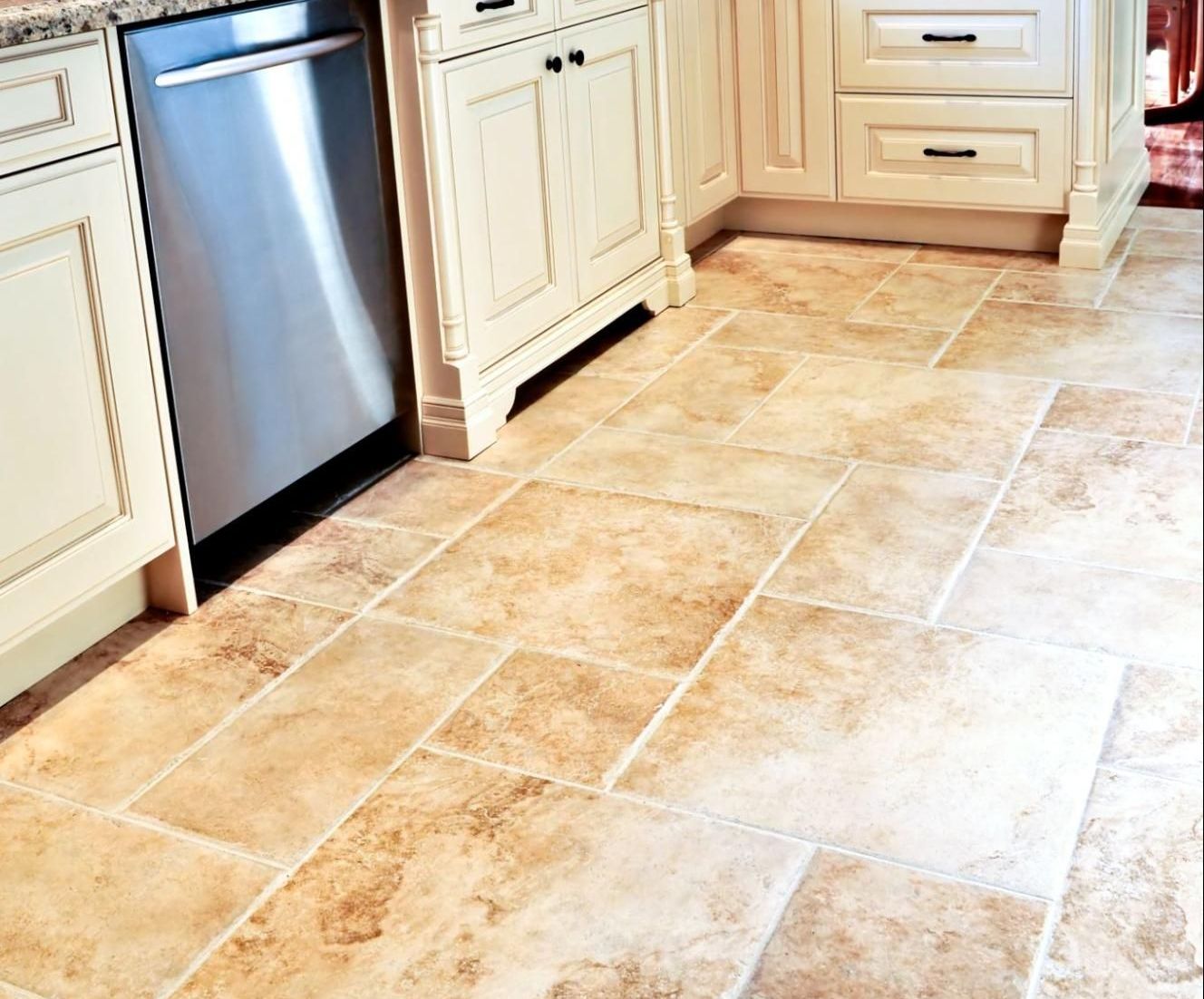Do Tile Floors Increase Home Value? A Smart Investment for Homeowners
When considering ways to increase home value, homeowners often focus on upgrades like kitchen remodels, new roofing, or adding a fresh coat of paint. However, one of the most effective and long-lasting improvements is installing tile flooring. But do tile floors increase home value? The short answer is yes. Tile floors are durable, aesthetically pleasing, and a strong selling point for potential buyers. In this blog, we'll explore how tile flooring affects home value, which tile types offer the best return on investment, and why homebuyers prefer tile in certain areas of the home.
How Tile Flooring Affects Home Value
The type of flooring in a home plays a significant role in its resale value, durability, and overall appeal. Tile flooring is one of the top choices for homeowners looking to boost their property’s marketability. Here's how tile flooring contributes to home value:
Durability and Longevity
Tile flooring, especially ceramic, porcelain, and natural stone, is known for its exceptional durability. Unlike carpet, which wears down over time, or hardwood, which may scratch or require refinishing, tile can last decades with minimal maintenance. Buyers recognize this as a low-maintenance, long-term investment, making homes with tile flooring more attractive.
Aesthetic Appeal
Modern homebuyers are drawn to sleek, stylish, and timeless flooring options. Tile comes in various colors, textures, and finishes, allowing homeowners to create a customized look that enhances a home's overall aesthetic. Whether it's classic marble, rustic wood-look tile, or contemporary large-format porcelain, tile flooring instantly elevates the home’s visual appeal, increasing its perceived value.
Moisture Resistance and Easy Maintenance
The tile is water-resistant, making it ideal for high-moisture areas like kitchens, bathrooms, and laundry rooms. Unlike wood or carpet, which can warp or develop mold when exposed to moisture, tile is resistant to water damage and staining. Its low maintenance makes it an attractive feature for buyers looking for hassle-free flooring.
Improved Indoor Air Quality
Unlike carpeting, which can trap allergens, dust, and pet dander, tile flooring promotes better indoor air quality. Many buyers, especially those with allergies or respiratory sensitivities, prefer tile flooring because it does not harbor allergens, improving overall home livability.
Higher Appraisal Value
Real estate experts agree that homes with tile flooring often appraise for more than those with outdated carpeting or worn-out hardwood floors. While the exact increase in home value depends on factors like tile quality, installation, and market demand, homeowners can generally expect a solid return on investment (ROI) when upgrading to tile flooring.
Which Types of Tile Add the Most Value?
Not all tile flooring options offer the same level of value. The type of tile you choose can significantly impact the ROI and resale potential of your home. Here are the best tile options for increasing home value:
1. Porcelain Tile
Porcelain tile is one of the most sought-after flooring materials due to its strength, water resistance, and versatility. It mimics the look of natural stone, wood, or concrete but requires far less maintenance. Porcelain tile is ideal for high-traffic areas, making it a favorite among buyers who prioritize durability.
2. Natural Stone Tile (Marble, Travertine, Slate, and Granite)
Natural stone tile exudes luxury and can significantly boost home value. While more expensive than other tile options, materials like marble, travertine, and granite are highly desirable in upscale homes. Natural stone floors are particularly attractive in bathrooms and entryways, where they create an elegant and high-end feel.
3. Wood-Look Tile
One of the biggest trends in modern flooring is wood-look tile, which combines the aesthetic appeal of hardwood with the durability of tile. Homebuyers love this option because it provides the warmth and sophistication of wood while being scratch-resistant, waterproof, and easy to maintain. Wood-look tile is an excellent choice for living rooms, kitchens, and even bedrooms.
4. Large-Format Tiles
Large-format tiles, such as 12x24 inches or 24x48 inches, create a seamless and modern look. They reduce grout lines, making cleaning easier and giving the space a more open and luxurious appearance. These tiles are particularly popular in contemporary home designs.
5. Ceramic Tile
Ceramic tile is a budget-friendly yet high-value flooring option. It offers many of the benefits of porcelain tile, such as durability, moisture resistance, and versatility, at a lower cost. Homeowners looking for an affordable flooring upgrade often turn to ceramic tile for kitchens, bathrooms, and hallways.

Why Homebuyers Prefer Tile in Certain Areas
While tile flooring can be installed throughout the home, certain areas benefit the most from tile, making these spaces more attractive to potential buyers.
- Kitchens: Tile flooring is a top choice for kitchens because it is waterproof, easy to clean, and resistant to spills and stains. Many homebuyers prefer kitchens with tile floors because they can withstand heavy foot traffic and cooking-related messes without deteriorating.
- Bathrooms: Bathrooms with tile flooring are almost expected in modern homes. Tile prevents moisture damage, mold growth, and staining, making it the perfect material for high-humidity areas. Upgrading an outdated bathroom with stylish tile flooring can significantly boost resale value.
- Entryways and Hallways: First impressions matter, and entryways are the first thing guests and potential buyers see when walking into a home. Tile flooring in entryways and hallways adds sophistication, durability, and an easy-to-clean surface, making a lasting impact on homebuyers.
- Living Areas: Although wood and carpet are common choices for living rooms, more homeowners are choosing wood-look tile or high-end natural stone to add a unique, elegant touch. In warmer climates, tile flooring in living rooms is a popular choice because it helps keep homes cooler.
- Laundry Rooms and Mudrooms: Laundry rooms and mudrooms see a lot of dirt, moisture, and foot traffic, making tile flooring a practical choice. Homebuyers appreciate homes with tile in these areas because it ensures easy maintenance and long-term durability.
Final Thoughts: Is Tile Flooring a Worthwhile Investment?
So, do tile floors increase home value? Absolutely. Tile flooring is one of the most durable, stylish, and ROI-friendly upgrades homeowners can make. Whether you choose porcelain, ceramic, natural stone, or wood-look tile, the right tile can significantly enhance the resale value and appeal of your home. By upgrading key areas like kitchens, bathrooms, and entryways, you can make your property more attractive to buyers and boost its overall market value.
If you're considering a flooring upgrade, Cincy Preferred Flooring can help you choose the perfect tile to match your style and budget. Contact us today to explore our wide selection of high-quality tile flooring and transform your home with a smart, value-boosting investment!


